What are REITs and How Do they Work?
Real estate investment can be the most profitable way you can put your money to work. However, the biggest challenge with this form of investment is that it requires a huge capital commitment to buy property. REITs allow investors to invest in the property market without the need for huge chunks of capital. Instead of buying properties, you can buy shares of a real estate investment trust or REIT. In this article, we explore what REITs are, how they work, and how you can invest in them.
What Are REITs?
Real estate investment trusts, or REITs, are companies that own, operate and manage real estate assets on behalf of investors. REITs can be traded publicly on a stock exchange like any other type of security. They are structured to provide investors with current income and potential long-term capital appreciation by allowing them to diversify their portfolio and access a potentially lucrative source of income.
Investors can purchase shares of either an Equity or mREIT on a stock exchange like any other security.
How Do REITs Work?
REITs work by pooling the capital of investors, who then purchase assets such as office buildings, shopping malls and apartments. The REIT then collects rent or mortgage payments and passes them along to the shareholders in the form of dividends.
REITs are required to distribute at least 90% of their taxable income to shareholders each year, making them attractive investments for those seeking an attractive yield. However, unlike stocks, REITs don’t pay corporate taxes on the income they generate from investing in real estate assets. This allows REITs to provide high dividend yields without sacrificing potential growth.
How Can You Invest in REITs?
Investors can purchase shares of REITs just like any other stock. However, it’s important to do your research before investing and make sure that you are comfortable with the risk profile of the REITs in which you are investing. The amount of diversification offered by a given REIT will also have an impact on its risk profile, so it is important to consider this when evaluating potential investments.
In addition to buying shares of publicly traded REITs, investors can also invest directly in specific real estate projects through private equity funds or crowdfunding platforms such as Fundrise, Realty Mogul, and RealtyShares.
Real estate investment trusts provide investors with access to potentially lucrative income streams from rental properties without needing to purchase physical property themselves. With careful research into the risks involved, investors can potentially benefit from REITs as part of a well-diversified portfolio.
Types of REITs
REITs are typically divided into three broad categories;
Equity REITs
An Equity Real Estate Investment Trust (REIT) is a type of REIT that owns and operates income-generating real estate properties. Equity REITs are required to distribute a certain percentage of their taxable income to shareholders in the form of dividends, which allows investors to receive regular income from their REIT investments.
Equity REITs invest in a variety of real estate assets, including apartments, shopping centers, office buildings, hotels, and self-storage facilities. They generate revenue through rent paid by tenants and through property appreciation, as the value of the REIT’s assets increases over time.
Equity REITs may also engage in activities such as property development and management. Many equity REITs are publicly traded on a stock exchange, which allows individual investors to buy and sell shares in the REIT.
Some equity REITs are privately held and can only be purchased directly from the REIT.These invest in rental property and derive their revenue from rental income and appreciation of the underlying properties.
Mortgage REITs
A Mortgage Real Estate Investment Trust (REIT) is a type of REIT that provides financing for real estate by purchasing or originating mortgages and mortgage-backed securities. Mortgage REITs generate income from the interest on these investments.
Mortgage REITs may invest in a variety of mortgage-related assets, including residential and commercial mortgages, as well as mortgage-backed securities issued by government-sponsored enterprises (GSEs) such as Fannie Mae and Freddie Mac.
Like other REITs, mortgage REITs are required to distribute a certain percentage of their taxable income to shareholders in the form of dividends. This structure allows investors to receive regular income from their REIT investments, as well as the potential for capital appreciation if the value of the REIT’s assets increases.
Mortgage REITs may be publicly traded on a stock exchange or privately held. They offer investors the potential for steady income, but the value of their assets may fluctuate based on market conditions and the REIT’s dividends may not be guaranteed. As with any investment, it is important to carefully consider the risks and potential returns before making a decision.
Hybrid REITs
A Hybrid Real Estate Investment Trust (REIT) is a type of REIT that combines elements of both equity REITs and mortgage REITs. An equity REIT owns and operates income-generating real estate properties, such as apartments, shopping centers, and office buildings. A mortgage REIT provides financing for real estate by purchasing or originating mortgages and mortgage-backed securities.
A hybrid REIT owns both properties and mortgage investments. This allows the REIT to generate income from both rental income and the interest on its mortgage investments. Hybrid REITs may also engage in other activities, such as developing properties and providing property management services.
Like other REITs, hybrid REITs are required to distribute a certain percentage of their taxable income to shareholders in the form of dividends. This structure allows investors to receive regular income from their REIT investments, as well as the potential for capital appreciation if the value of the REIT’s assets increases. Hybrid REITs may be publicly traded on a stock exchange or privately held.
Ways to invest in REITs
There are different specific types of REITs that you can invest in. Below are some of them;
Retail REITs
Retail REITs are a type of real estate investment designed to provide investors with exposure to retail properties without directly owning them. Retail REITs can generate steady returns and help diversify an investor’s portfolio, as well as offering potential for long-term wealth appreciation. These invest in retail stores, malls and shopping centers and generate their income from rent paid by tenants.
Retail REITs may own and operate a single retail property, or they may own a portfolio of properties. They are typically structured as publicly traded companies, which means that they are owned by a group of shareholders and are required to file financial reports with regulatory agencies.
They account for around 24 percent of REIT investments and represent the single biggest type of investment in America. Retail REITs mainly make money from the rent that tenants pay. This means a change in the tenants’ cash flow also affects those monthly payments and ultimately eats into investors’ earnings.
Retail REITs are a popular investment choice for those looking to invest in the retail sector, as they offer the opportunity to earn income from the leasing of retail properties without the need to directly own and manage those properties. They also provide investors with the opportunity to diversify their portfolios and potentially earn higher returns compared to other types of real estate investments.
Retail REITs come with higher risks and greater potential rewards as well. With proper research and understanding, however, these investments can prove to be an excellent addition to any portfolio.
Residential REITs
Residential REITs are a type of real estate investment designed to provide investors with exposure to the residential property market without directly owning it. These involve investing in apartment buildings, student housing,single-family homes, multi-family dwellings, manufactured housing, townhomes, and condos.
They may also own and operate a single residential property, or they may own a portfolio of properties and operate as publicly traded companies owned by a group of shareholders and are required to file financial reports with regulatory agencies.
Like retail REITs, residential REITs also generate their income from rent paid by tenants. They are a less risky investment than retail REITs, since residential properties tend to retain their value better over time. However, they can also be more expensive to acquire and manage.
Healthcare REITs
Healthcare REITs are a type of real estate investment designed to provide investors with exposure to healthcare facilities without directly owning them. These involve investing in medical office buildings, hospitals, nursing homes and other properties related to the healthcare industry.
Healthcare REITs generate their income through the leasing of their properties to tenants, who are typically healthcare providers, such as hospitals, clinics, and other types of medical practices. They also earn income from the appreciation of the underlying assets.
They offer investors an attractive combination of steady income streams and potential for long-term growth. However, they come with higher risks than standard retail or residential REITs due to the uncertainty surrounding changes in healthcare policy and regulations.
Industrial REITs
Industrial REITs are a type of real estate investment designed to provide investors with exposure to industrial properties without directly owning them. These involve investing in warehouses, office complexes, factories and other industrial facilities.
They are also organised as publicly traded companies, which means that they are owned by a group of shareholders and are required to file financial reports with regulatory agencies.
Industrial REITs generate their income from rent paid by tenants, as well as from appreciation of the underlying assets. Industrial REITs are less risky investments than retail or residential REITs due to the typically longer-term nature of these leases. However, they also tend to require a larger up-front investment and may not be suitable for all investors.
Office REITs
Office REITs are a type of real estate investment designed to provide investors with exposure to office properties without directly owning them. These involve investing in office buildings, business centres and other commercial properties.
Like other types of REITs, office REITs generate their income from rent paid by tenants, as well as from appreciation of the underlying assets. Office REITs offer potential for long-term wealth appreciation and steady returns, but they also come with higher risks due to changes in tenant occupancy rates and the overall economic climate. Investors should do their research carefully before investing in any type of real estate investments.
Top 10 REITs in The U.S.
Given the volatile nature of the real estate market, the list of the top 10 REITs in the U.S. keeps changing over time based on several factors including financial performance, market conditions, and investor sentiment. However, some of the largest and most well-known REITs in the U.S. include:
1. Simon Property Group (retail)

Simon Property Group is a retail real estate investment trust (REIT) that is headquartered in Indianapolis, Indiana. It is one of the largest REITs in the world and owns and operates a portfolio of more than 200 shopping centers, premium outlets, and other retail properties in the U.S. and abroad. Some of the well-known properties in Simon Property Group’s portfolio include The Mills, The Premium Outlets, and The Forum Shops.
Simon Property Group’s properties are leased to a variety of retailers, including department stores, apparel stores, and specialty stores. The company generates income through the leasing of its properties and also derives revenue from various services such as property management, leasing, and marketing.
Pros
- Well-established and diversified REIT with a strong track record of financial performance
- The company has a long history of increasing its dividends to shareholders and has a strong balance sheet with low debt levels.
- Simon Property Group owns and operates a diverse portfolio of retail properties, including shopping centers and premium outlets, which can provide a steady stream of rental income.
- The retail sector can be less volatile than some other industries, which may make it an appealing choice for risk-averse investors.
Cons
- The retail sector has faced challenges in recent years due to the rise of e-commerce and changing consumer preferences, which has led to the closure of some traditional retail stores. This could potentially impact the performance retail REITs in general
- The company may be affected by a variety of factors such as economic conditions, changes in consumer behavior, and the success or failure of individual retailers that lease space in the company’s properties.
2. American Tower Corporation (cellular towers)
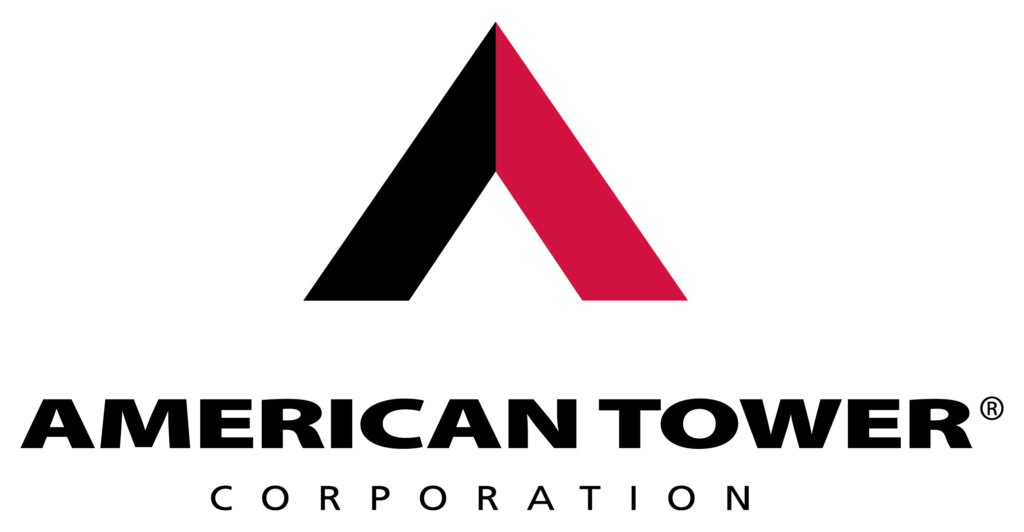
American Tower Corporation is a real estate investment trust (REIT) that is headquartered in Boston, Massachusetts. It is a leading global provider of wireless communications infrastructure, with a portfolio of approximately 170,000 communications sites around the world. The majority of these sites are cellular towers, although the company also owns and operates other types of communications infrastructure such as rooftops and distributed antenna systems (DAS).
American Tower Corporation generates income through the leasing of its communications sites to wireless carriers and other tenants. The company’s tenants use the sites to transmit and receive wireless signals, allowing them to provide mobile voice and data services to their customers.
Pros
- The company has a diverse global portfolio of communications sites, which can help to mitigate risks associated with any particular market or region
- The demand for wireless communications infrastructure is likely to continue to grow as more people around the world adopt and use mobile devices. This could potentially lead to increased revenues and profits for the company and its investors
- Distribute a significant portion of their profits to shareholders in the form of dividends, which can provide a steady stream of income for investors.
Cons
- The telecommunications industry is subject to technological changes and regulatory risks, which could potentially impact the company’s performance
- The demand for wireless communications infrastructure is dependent on the adoption and usage of mobile devices, which can be affected by economic conditions and consumer behavior.
3. Prologis (industrial)

Prologis is a real estate investment trust (REIT) that focuses on industrial properties such as warehouses, distribution centers, and logistics facilities. The company owns and operates approximately 4,100 properties across 19 countries in North America, Europe, Asia Pacific, Latin America and other markets.
Prologis generates income through the leasing of its industrial properties to tenants such as third-party logistics providers, retailers, manufacturers and e-commerce companies. The company also provides services such as property management and development to help maximize the value of its portfolio.
Pros
- The industrial sector has been relatively resilient during periods of economic uncertainty due to the essential nature of many goods distributed through these types of facilities
- The global demand for warehouse space is likely to increase as more retailers and e-commerce companies look to expand their presence in new markets. This could potentially lead to increased revenues and profits for the company
- Prologis has a diversified portfolio of industrial properties located in key markets around the world, which can help to mitigate risks associated with any particular market or region
- The company distributes a significant portion of its profits to shareholders in the form of dividends, which can provide a steady stream of income for investors.
Cons
- The performance of Prologis may be affected by changes in consumer preferences and economic conditions, both of which can impact demand for warehouse space
- Demand for industrial properties is dependent on the success or failure of tenants who lease space from the company, so changes in tenant performance could potentially affect revenues and profits.
- The industrial real estate market is highly competitive, so Prologis may need to lower rents or offer other incentives in order to attract tenants, which could lead to lower profits.
4. Public Storage (self-storage)

Public Storage is a real estate investment trust (REIT) that specializes in self-storage properties. The company owns and operates over 2,500 locations across the United States, Europe and Asia Pacific. Public Storage generates income through the leasing of its self-storage units to individuals and businesses.
The company operates in an industry that is generally considered to be recession-resistant, as people and businesses tend to need storage space regardless of economic conditions. This can provide a stable stream of rental income for the company and potentially make it a more defensive investment.
Pros
- Self-storage facilities are typically used during times of transition or relocation, which may be less affected by economic downturns than other sectors
- The demand for self-storage could increase as more people move to cities for work or school, leading to increased revenues and profits for the company
- Public Storage has a diversified portfolio of locations located in key markets around the world, which can help to mitigate risks associated with any particular market or region
- The company distributes a significant portion of its profits to shareholders in the form of dividends, which can provide a steady stream of income for investors.
Cons
- Public Storage is subject to competition from other self-storage operators and could potentially lose market share if competitors offer better terms or lower prices
- The company’s performance may be impacted by changes in consumer preferences, including an increased preference for digital storage solutions over physical storage units.
- Demand for self-storage space is heavily reliant on the success or failure of tenants who lease space from the company, so changes in tenant performance could potentially affect revenues and profits.
5. Equity Residential (Residential)

Equity Residential is a real estate investment trust (REIT) that specializes in residential properties. The company owns and operates over 100,000 apartment units located across the United States. Equity Residential generates income through the leasing of its apartments to tenants.
The company operates in an industry that is generally considered to be relatively stable, as people tend to require housing regardless of economic conditions. This can provide a consistent stream of rental income for the company and potentially make it a more defensive investment.
Pros
- The demand for residential properties is likely to remain strong due to population growth and increasing urban migration
- Equity Residential has a diversified portfolio of residential properties located in key markets around the world, which can help to mitigate risks associated with any particular market or region
- The company distributes a significant portion of its profits to shareholders in the form of dividends, which can provide a steady stream of income for investors
- Equity Residential has a strong balance sheet with low debt levels, which can help to mitigate financial risks and provide financial stability
Cons
- Equity Residential is subject to competition from other residential real estate operators and could potentially lose market share if competitors offer better terms or lower prices
- The company’s performance may be impacted by changes in consumer preferences, such as an increased preference for urban living over suburban living
- Demand for residential space is dependent on economic conditions, so changes in economic conditions could impact revenues and profits. The company also faces risks associated with changing laws and regulations that can affect tenant rights and landlord responsibilities
6. Ventas (healthcare)
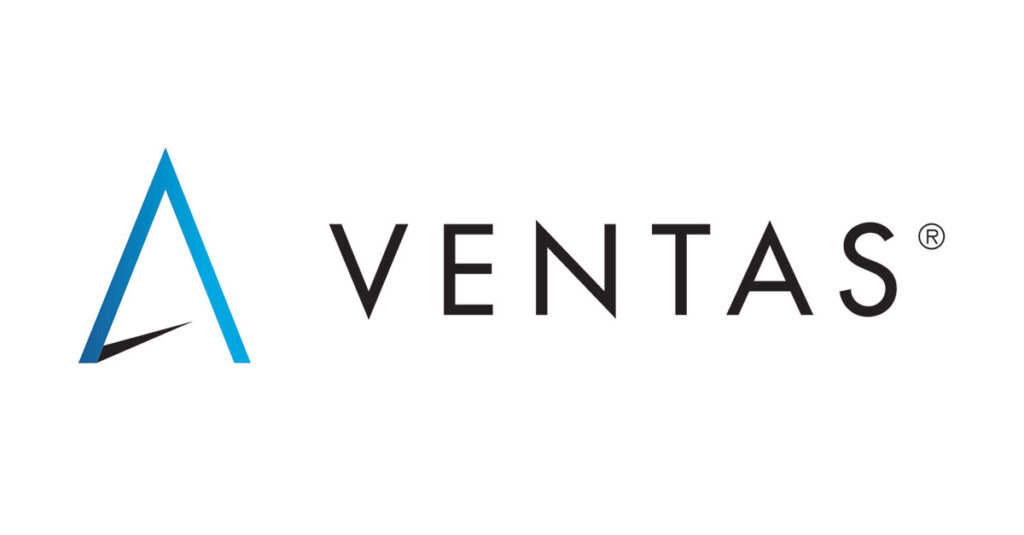
Ventas is a real estate investment trust (REIT) that specializes in healthcare properties. The company owns and operates over 1,200 medical facilities located across the United States. Ventas generates income through the leasing of its healthcare facilities to tenants.
The company operates in an industry that is generally considered to be relatively stable, as people will continue to need healthcare services regardless of economic conditions. This can provide a consistent stream of rental income for the company and potentially make it a more defensive investment.
Pros
- The demand for healthcare properties is likely to remain strong due to population growth and aging demographics
- Ventas has a diversified portfolio of healthcare properties located in key markets around the world, which can help to mitigate risks associated with any particular market or region
- The company distributes a significant portion of its profits to shareholders in the form of dividends, which can provide a steady stream of income for investors
- Ventas has a strong balance sheet with low debt levels, which can help to mitigate financial risks and provide financial stability
Cons
- Ventas is subject to competition from other healthcare real estate operators and could potentially lose market share if competitors offer better terms or lower prices
- The company’s performance may be impacted by changes in reimbursement rates from government programs like Medicare and Medicaid, as well as private insurers
7. Boston Properties (office)

Boston Properties is a real estate investment trust (REIT) that specializes in office properties. The company owns and operates over 150 office buildings located across the United States. Boston Properties generates income through the leasing of its offices to tenants.
The company operates in an industry that is generally considered to be relatively cyclical, as demand for office space can fluctuate with economic conditions. This means that while there may be times of strong growth and high profits, there can also be periods of declining revenues and weaker performance.
Pros
- Office properties provide long-term leases which can provide greater certainty and stability than shorter-term leases offered by other commercial property types
- Boston Properties has a diversified portfolio of office properties located in key markets around the United States, which can help to mitigate risks associated with any particular market or region
- The company distributes a significant portion of its profits to shareholders in the form of dividends, which can provide a steady stream of income for investors
- Boston Properties has a strong balance sheet with low debt levels, which can help to mitigate financial risks and provide financial stability
Cons
- Boston Properties is subject to competition from other office real estate operators and could potentially lose market share if competitors offer better terms or lower prices
- The company’s performance may be impacted by changes in economic conditions, as demand for office space can be adversely affected during times of recession.
8. Digital Realty Trust (data centers)
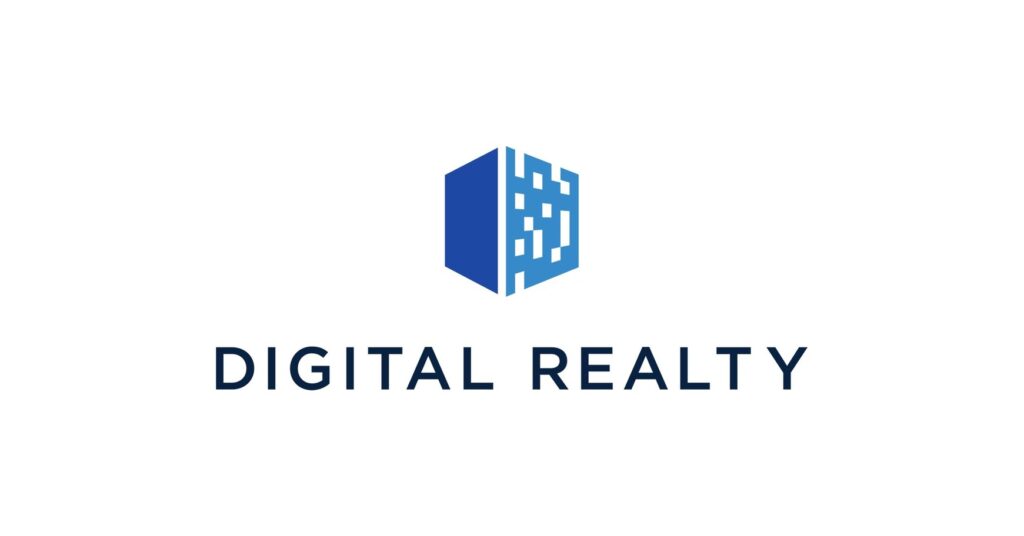
Digital Realty Trust is a real estate investment trust (REIT) that specializes in data center properties. The company owns and operates over 200 data centers located across the United States, Europe, Asia-Pacific, and Latin America. Digital Realty Trust generates income through the leasing of its data centers to tenants.
The company operates in an industry that is generally considered to be relatively stable, as businesses and organizations will continue to require data storage solutions regardless of economic conditions. This can provide a consistent stream of rental income for the company and potentially make it a more defensive investment.
Pros
- Data centers are essential for businesses and organizations who need secure and reliable infrastructure for their IT operations
- Digital Realty Trust has a diversified portfolio of data centers located in key markets around the world, which can help to mitigate risks associated with any particular market or region
- The company distributes a significant portion of its profits to shareholders in the form of dividends, which can provide a steady stream of income for investors
- Digital Realty Trust has a strong balance sheet with low debt levels, which can help to mitigate financial risks and provide financial stability
Cons
- Digital Realty Trust is subject to competition from other data center operators and could potentially lose market share if competitors offer better terms or lower prices
- The company’s performance may be impacted by changes in technology and advances in cloud computing, as these could reduce demand for traditional data centers.
- The company is also subject to cybersecurity risks and could potentially face costly data breaches.
9. Kimco Realty Corporation (retail)
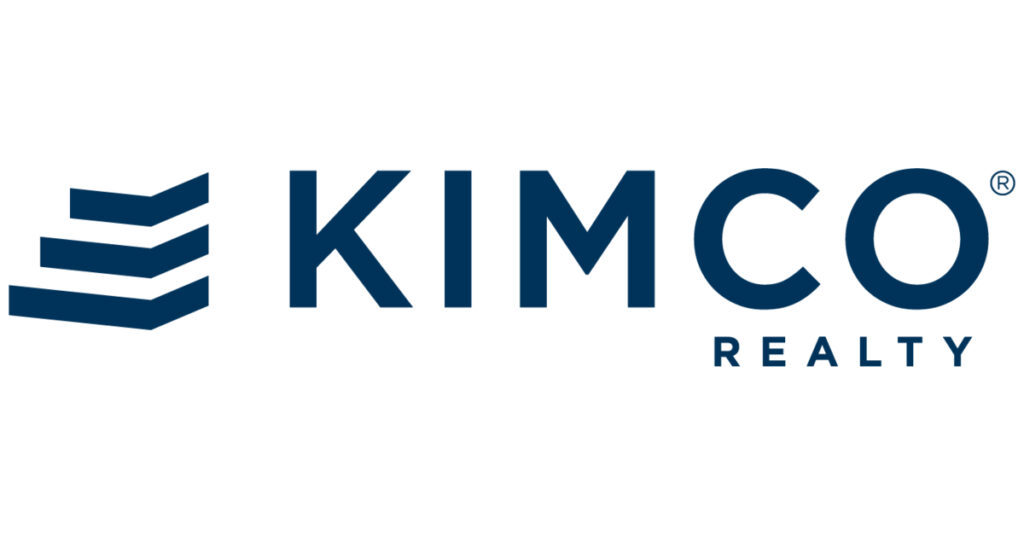
Kimco Realty Corporation is a real estate investment trust (REIT) that specializes in retail properties. The company owns and operates over 400 shopping centers located across the United States, Canada, Puerto Rico, Mexico, and South America. Kimco Realty Corporation generates income through the leasing of its retail properties to tenants.
The company operates in an industry that is generally considered to be relatively cyclical, as demand for retail space can fluctuate with economic conditions. This means that while there may be times of strong growth and high profits, there can also be periods of declining revenues and weaker performance.
Pros
- Retail properties provide long-term leases which can provide greater certainty and stability than shorter-term leases
- Kimco Realty Corporation has a diversified portfolio of properties located in key markets around the world, which can help to mitigate risks associated with any particular market or region
- The company distributes a significant portion of its profits to shareholders in the form of dividends, which can provide a steady stream of income for investors
- Kimco Realty Corporation has a strong balance sheet with low debt levels, which can help to mitigate financial risks and provide financial stability
Cons
- Kimco Realty Corporation is subject to competition from other retail real estate operators and could potentially lose market share if competitors offer better terms or lower prices
- The company’s performance may be impacted by changes in economic conditions, as demand for retail space can be adversely affected during periods of economic weakness
- Kimco Realty Corporation is also subject to risks associated with tenant defaults, as tenants may be unable to meet their lease obligations due to financial difficulties.
10. Federal Realty Investment Trust (retail)
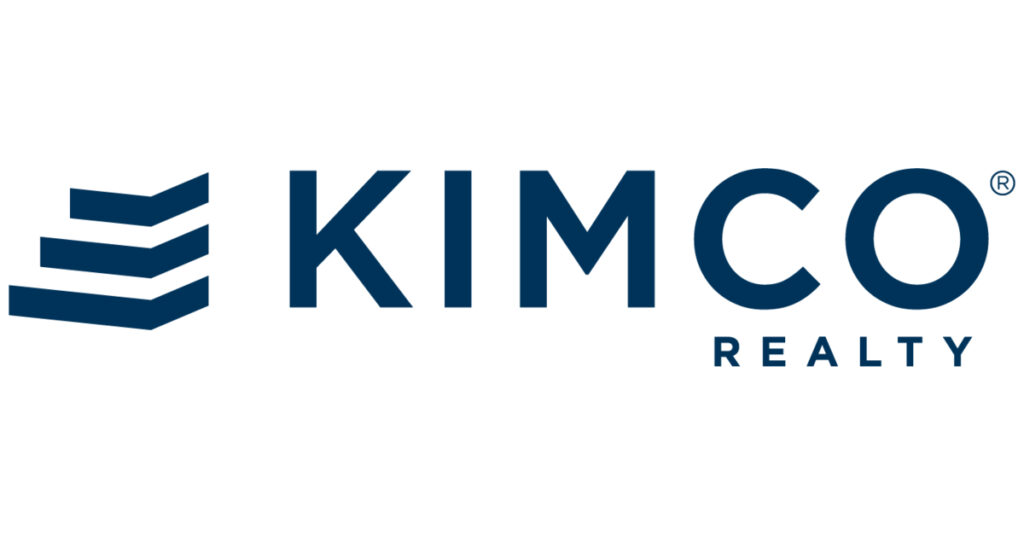
Federal Realty Investment Trust is a real estate investment trust (REIT) that specializes in retail properties. The company owns and operates over 200 shopping centers located across the United States, as well as select international markets. Federal Realty Investment Trust generates income through the leasing of its retail properties to tenants.
The company operates in an industry that is generally considered to be relatively cyclical, as demand for retail space can fluctuate with economic conditions. This means that while there may be times of strong growth and high profits, there can also be periods of declining revenues and weaker performance.
Pros
- Retail properties provide long-term leases which can provide greater certainty and stability than shorter-term leases
- Federal Realty Investment Trust has a diversified portfolio of properties located in key markets around the world, which can help to mitigate risks associated with any particular market or region
- The company also distributes a significant portion of its profits to shareholders in the form of dividends, which can provide a steady stream of income for investors
- Federal Realty Investment Trust has a strong balance sheet with low debt levels, which can help to mitigate financial risks and provide financial stability
Cons
- Federal Realty Investment Trust is subject to competition from other retail real estate operators and could potentially lose market share if competitors offer better terms or lower prices
- The company’s performance may be impacted by changes in economic conditions, as demand for retail space can be adversely affected during periods of economic weakness
- Federal Realty Investment Trust is also subject to risks associated with tenant defaults, as tenants may be unable to meet their lease obligations due to financial difficulties.
Conclusion
REITs have become a favourite investment instrument for investors seeking to diversify their portfolio and earn stable returns in the long. They can be focused on a variety of property types, including office buildings, retail centres, industrial properties, apartments, and healthcare facilities, among others. These forms of investments offer investors the opportunity to earn income from real estate investments without the need to directly own and manage those properties, and they can provide diversification for an investment portfolio. However, like any investment, REITs carry certain risks and it’s important for investors to carefully consider the potential rewards and risks before making any investment decisions.






